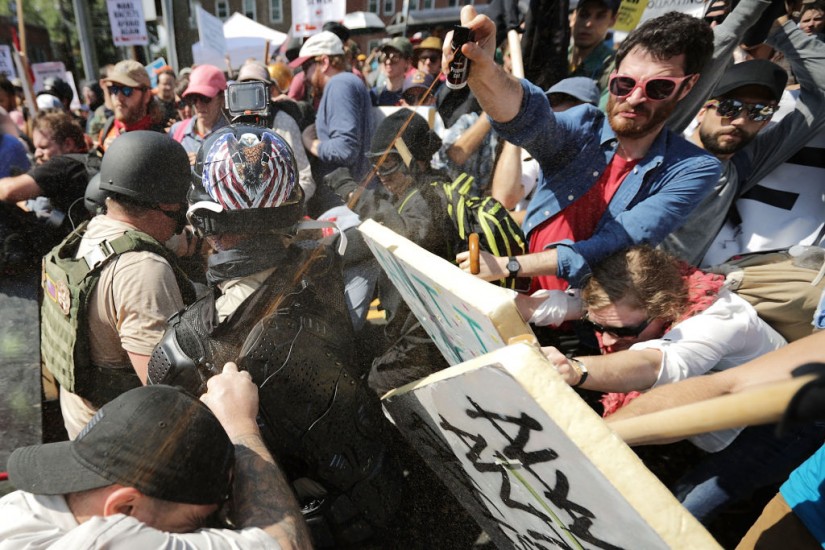In the days leading up to the now-infamous Charlottesville rally, local businesses begged the city to move the nationalists’ protest away from the downtown, fearing damage to their properties. The university hospital prepared for mass casualties. It was clear that this was likely not going to be an exchange of words or ideas.
Still, university police and administrators felt that they could take few steps to limit the scope or tenor of the torch-lit march on its grounds Friday night, because to do so would violate the First Amendment. And when the city attempted to move the site of the march to an alternate venue further from downtown—on the grounds that the rally would be much larger than the original location could accommodate—a local judge ruled that such a venue move was a violation of free speech. He found that the venue change was based on the ideology of the speakers (a content-based restriction, in the language of the law) and that he saw no compelling evidence that the event would be dangerous.
In some ways it is not surprising that Judge Glen Conrad arrived at this decision. It fits within common civil libertarian frameworks, among them content neutrality and what the Court decided in 1978 was the right of Nazis to march in a community of many Holocaust survivors: Skokie, Illinois. In this, Conrad’s decision avoided pressing questions about when speech and advocacy becomes a credible threat and what the implications for speech rights are when diverging groups meet on unequal ground (e.g. when one side is armed).
The Charlottesville decision, and much of the commentary afterwards, followed a familiar terrain of legal history and precedent, largely concerned with content-neutrality, or the principle that lawmakers may not restrict expression based on its content. There is, however, a different historical trajectory of legal reasoning and cases that speaks to the need of the state to balance the threat of violence with the right of free speech: that of the public square and of expressive conduct. This tradition, further, reminds us that the Court can draw a line between violence and speech, as well as address structural inequalities in speech without suppressing minority speech rights.
